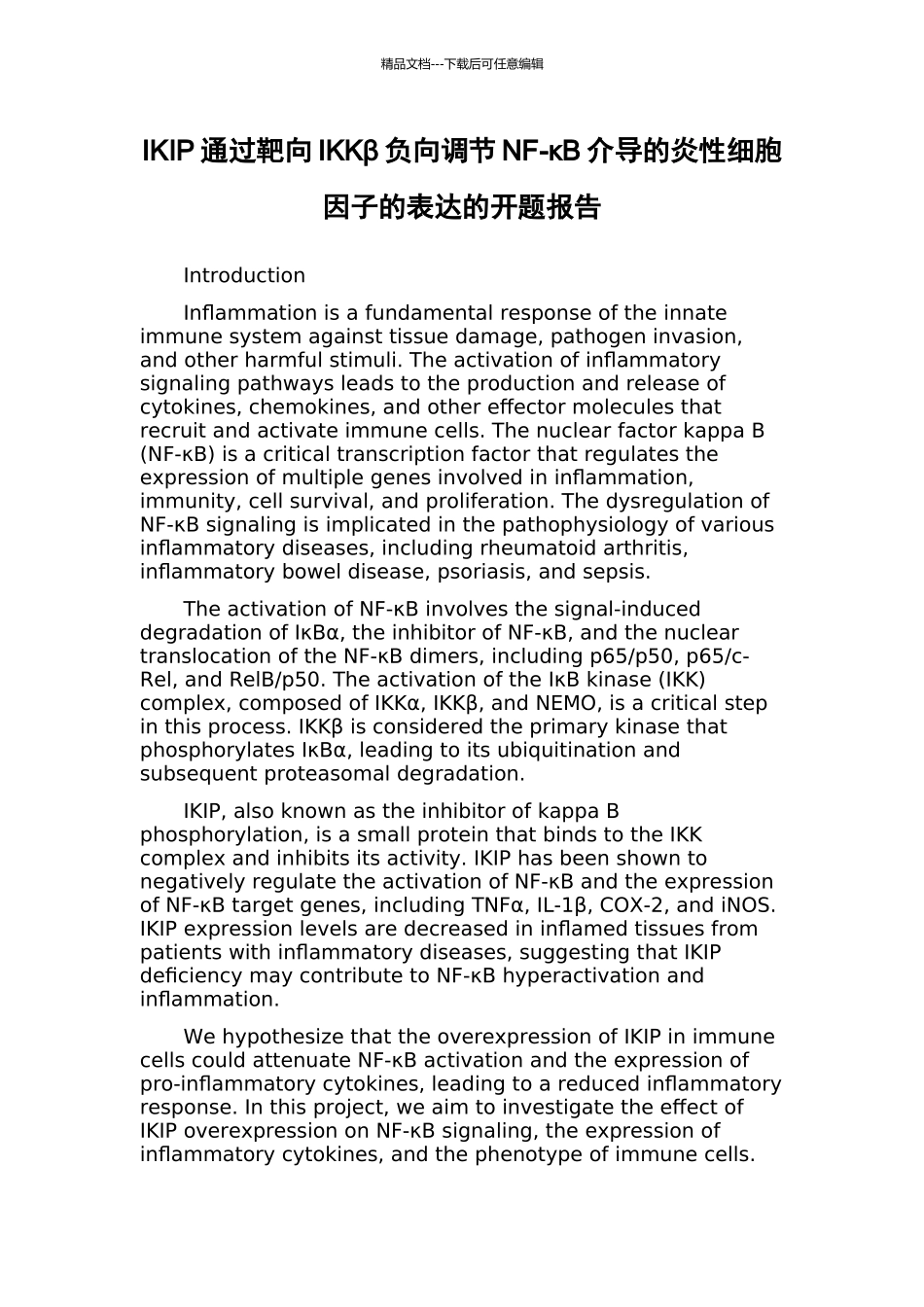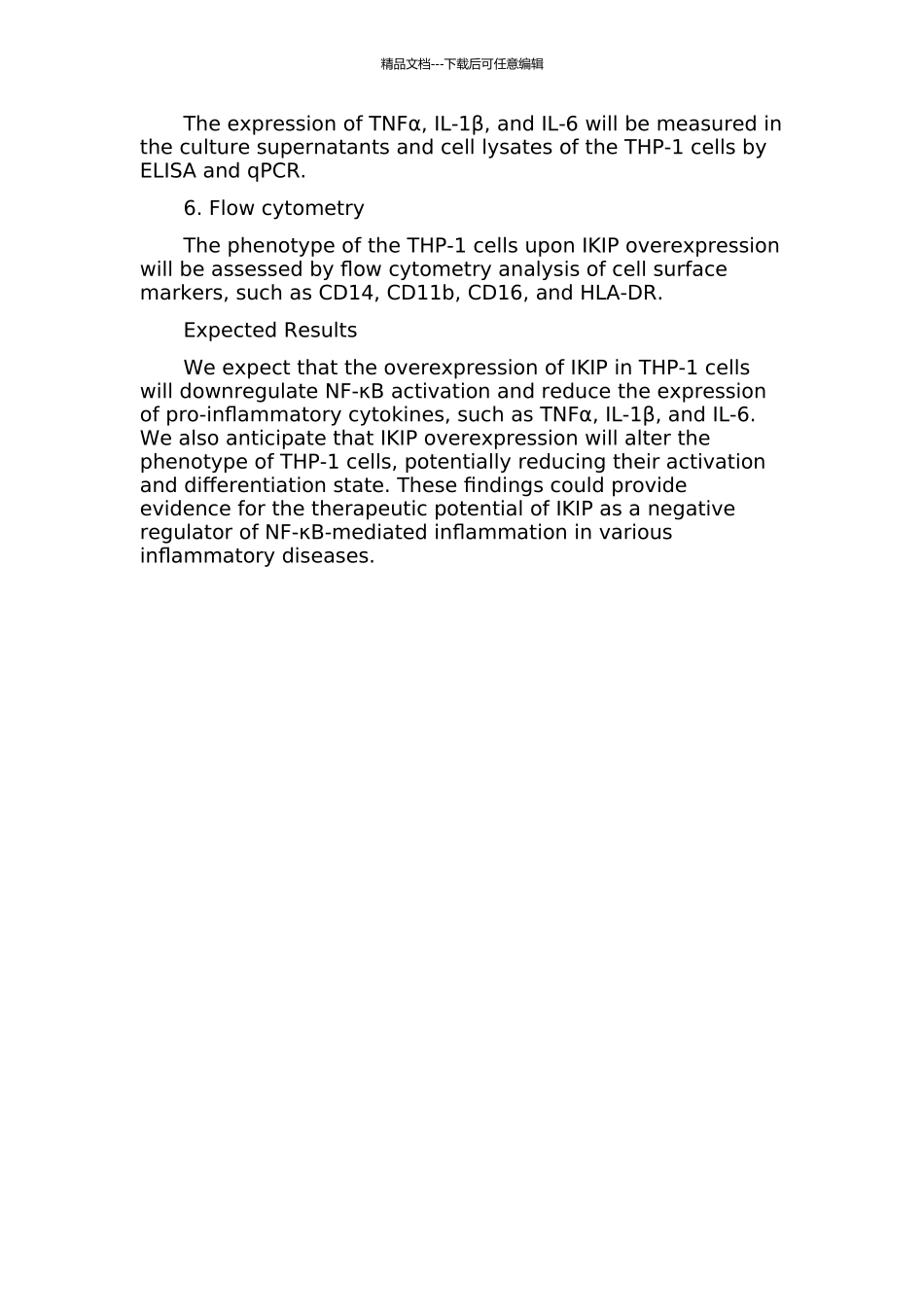精品文档---下载后可任意编辑IKIP 通过靶向 IKKβ 负向调节 NF-κB 介导的炎性细胞因子的表达的开题报告IntroductionInflammation is a fundamental response of the innate immune system against tissue damage, pathogen invasion, and other harmful stimuli. The activation of inflammatory signaling pathways leads to the production and release of cytokines, chemokines, and other effector molecules that recruit and activate immune cells. The nuclear factor kappa B (NF-κB) is a critical transcription factor that regulates the expression of multiple genes involved in inflammation, immunity, cell survival, and proliferation. The dysregulation of NF-κB signaling is implicated in the pathophysiology of various inflammatory diseases, including rheumatoid arthritis, inflammatory bowel disease, psoriasis, and sepsis.The activation of NF-κB involves the signal-induced degradation of IκBα, the inhibitor of NF-κB, and the nuclear translocation of the NF-κB dimers, including p65/p50, p65/c-Rel, and RelB/p50. The activation of the IκB kinase (IKK) complex, composed of IKKα, IKKβ, and NEMO, is a critical step in this process. IKKβ is considered the primary kinase that phosphorylates IκBα, leading to its ubiquitination and subsequent proteasomal degradation.IKIP, also known as the inhibitor of kappa B phosphorylation, is a small protein that binds to the IKK complex and inhibits its activity. IKIP has been shown to negatively regulate the activation of NF-κB and the expression of NF-κB target genes, including TNFα, IL-1β, COX-2, and iNOS. IKIP expression levels are decreased in inflamed tissues from patients with inflammatory diseases, suggesting that IKIP deficiency may contribute to NF-κB hyperactivation and inflammation.We hypothesize that th...


